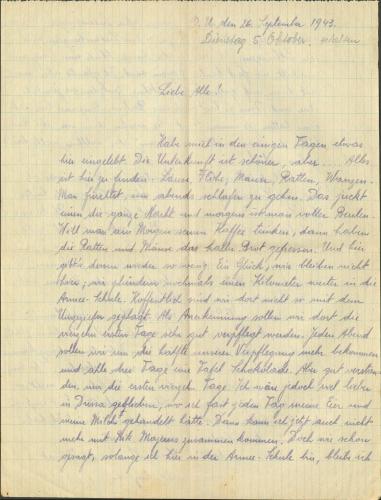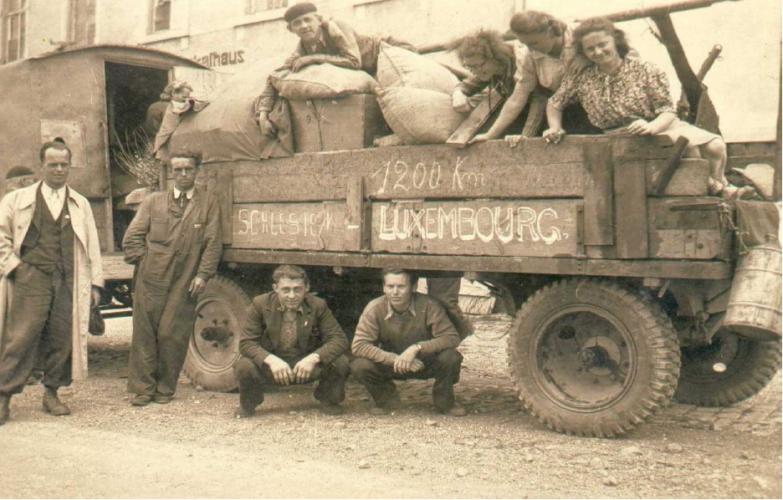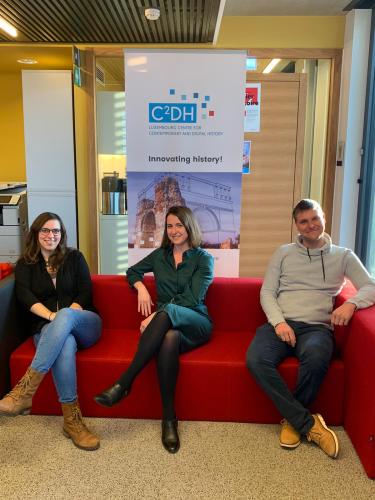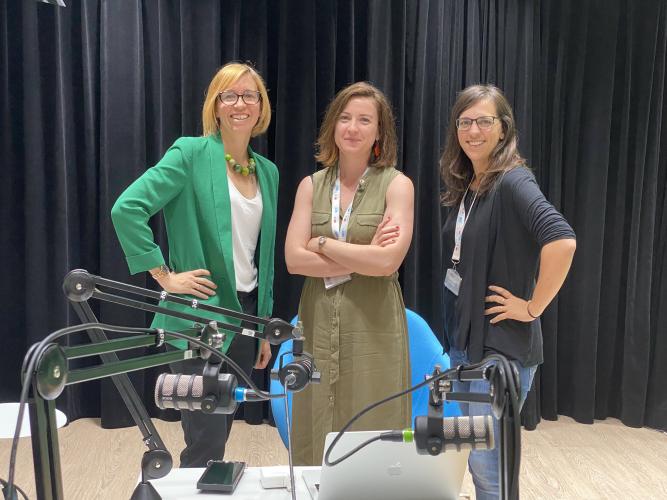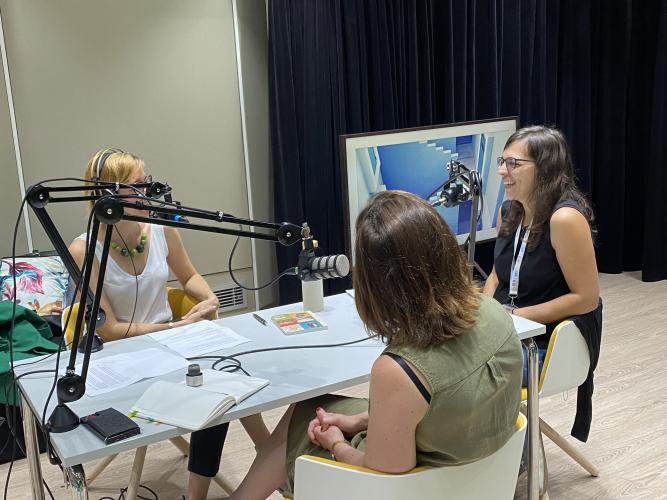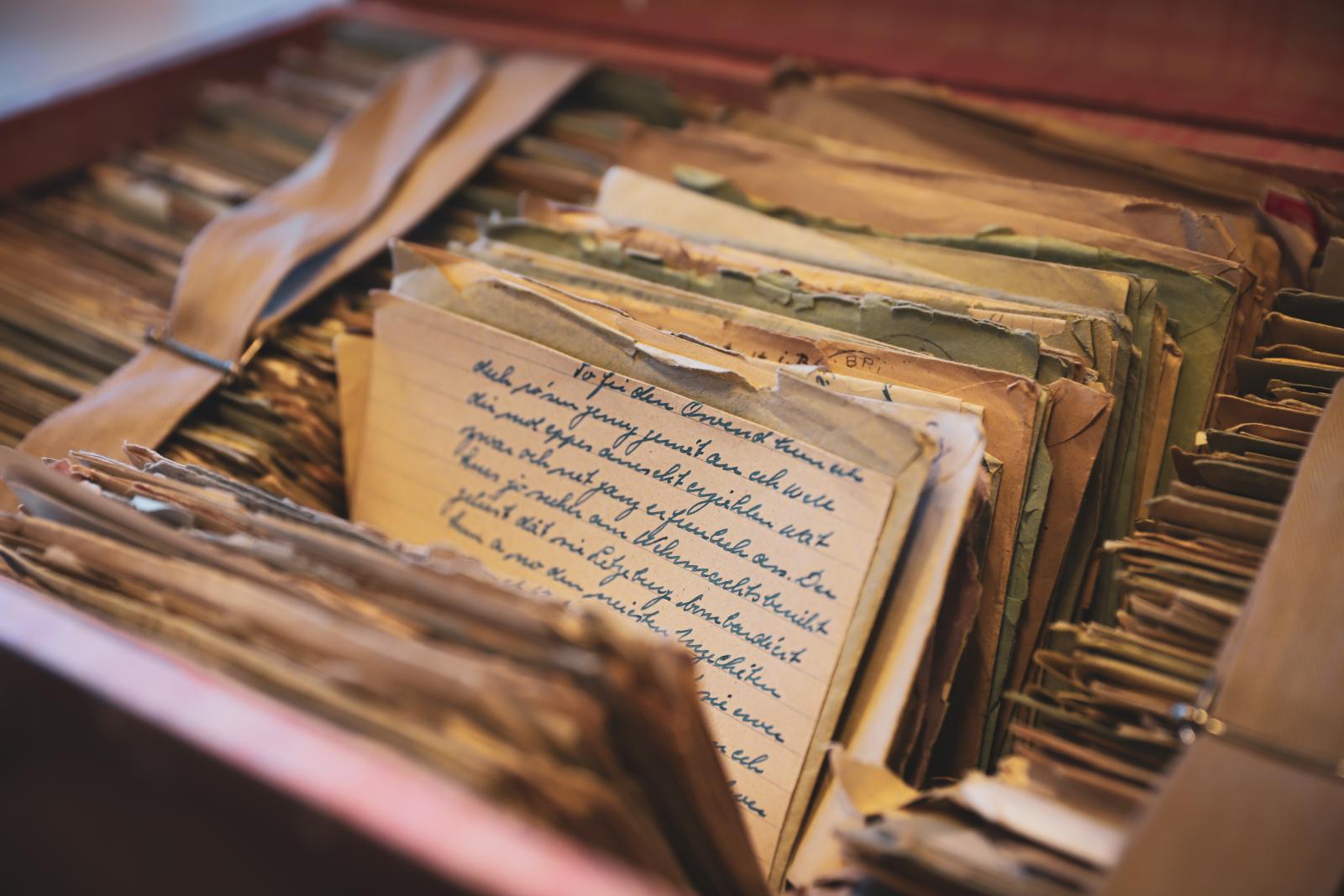
From March 2020 to March 2024, the FNR CORE research project “WARLUX - Soldiers and their Communities in WWII: The Impact and Legacy of War Experiences in Luxembourg” was conducted at the Luxembourg Centre for Digital and Contemporary History (C²DH) at the University of Luxembourg. The team behind WARLUX included Principal Investigator and C2DH Deputy Director, Denis Scuto; Postdoctoral Research Associate, Nina Janz; and Doctoral Researcher Sarah Maya Vercruysse.
Over the past four years, they collected the biographies of young Luxembourgish soldiers and recruits, born between 1920-1927, as well as their families, in order to gain a better understanding of their experiences and trajectories during the war. The team used two samples: a first sample including the soldiers and families from Schifflange, for a more quantitative analysis, and a collection of first-hand documents from soldiers across Luxembourg, allowing for a dive deeper into personal experiences. The choice to focus on Schifflange as a case study was based on both practical and contextual considerations, including the accessibility of source material; the location of the commune in the country and in relation to industry (e.g., ARBED steel plants); the diversity of the conscripts’ profiles; and the number of conscripted individuals (which, at around 300, was a manageable sample for the study).
The research uses a combination of both administrative records from local, national, and international archives and ego-documents (letters, diaries, memoirs, etc.) written during or after the war. Files were widely dispersed throughout Luxembourg’s different communes, and one of the project’s main challenges was localising them. Accessing personal documents posed an additional challenge, so the team decided to organise a nation-wide crowdsourcing campaign in 2021, through which they collected several thousands of ego-documents and photographs.
For the analysis, the team created a relational database, which includes the data from the Schifflange research sample, including 304 RAD (Reichsarbeitsdienst, or Reich Labour Service) recruits and Wehrmacht soliders, as well as 733 individual family members belonging to 263 families.
In addition, it also has an overview of the 192 private collections, including several thousand letters, diaries, photographs and other documents that were collected during the crowdsourcing campaign, among which 163 letters are transcribed and available. This database forms the heart of the project.
The database and unique digital collection of war letters are only a couple of the many outcomes of the project. A specially devoted website showcases the team’s work. Together with the Musée National de la Résistance et des Droits Humains (MNRDH), the team also held a Forum Z event in February 2023, inviting the public of Schifflange to participate. This event also served as a collection day, where citizens had the opportunity to bring their personal war documents and have them scanned at a station arranged by the C2DH’s “Digital History Lab”. Schifflange mayor Paul Weimerskirch provided the welcome address at the event.
Furthermore, there have been numerous publications about the project. The forthcoming publication of conference proceedings following the international WARLUX conference held in October 2022 is planned for the end of 2024. This conference focused on the impact of war experiences of non-German nationals serving in the German armed forces and labour organisations.
The unique PhD project of Sarah Maya Vercruysse finishes in April 2025. In Luxembourg, no study had ever looked at the impact of the conscriptions on the family members and communities at home and how they coped with the absence of their sons, fathers, brothers. Vercruysse has been researching exactly these aspects—specifically on repressive measures and the experiences of families of deserters and draft evaders.
“In order to understand what people went through, I first had to go through the official documents to see what the framework was in which these measures took place,” Vercruysse explains. These included Nazi documentation as well as post-war Luxembourg testimonies, i.e., police reports. “For certain families, I have their statements to both the Nazi police but also the postwar Luxembourgish police officers, and it’s very interesting to analyse and compare both versions,” she adds.
She has discovered, for instance, that when a conscript deserted during home leave, families in Luxembourg were interrogated and their houses were searched in a bid to find and capture him. In certain cases, families were so bold as to say to the police officers that they would not reveal where their son was. “Then, by combining the different source material from the war and post-war period, you see that the son was hidden by the family at the time, or by neighbours,” Vercruysse says.
Nevertheless, there have been challenges in accessing documents. Not only are documents scattered—in Luxembourg, Germany, even farther abroad— each country also has different legislation on whether and how someone can access documents. Luxembourg's 2018 archiving law, for example, sets out further rules for public and private archives. "This law has very strict retention periods, and documents that were available until the law was passed in 2018 are now closed and require time-consuming bureaucratic procedures," Vercruysse explains, adding: "Most of the time we do receive access to these files because we're doing our research in the public interest, but it takes a lot of time."
War compensation files, which were particularly interesting to Vercruysse, took up to a year to access, and last year's temporary measure by the National Archives to “anonymise” files then rendered them virtually unusable. In many cases, it has been easier to access documents in Germany or the US than in Luxembourg.
More about Warlux
Project leader: Denis Scuto.
Project team: Sarah Maya Vercruysse, Nina Janz.
Funding: Luxembourg National Research Fund (FNR).
Partners:
- Comité pour la mémoire de la Deuxième Guerre mondiale / Hollerich Archives
- Fédération des enrôlés de force (FEDEF)
- German Federal Archives
- Lab 1100 / Nodegoat
- Luxembourg National Research Fund (FNR)
- Municipality of Beckerich
- Municipality of Clervaux
- Municipality of Echternach
- Municipality of Esch-sur-Alzette
- Municipality of Schifflange
- Municipality of Weiswampach
- Musée régional des enrôlés de force, Dudelange
- National Archives of Luxembourg
- NIOD Institute for War, Holocaust and Genocide Studies
- National Museum of Military History (MNHM), Diekirch
- National Museum of Resistance and Human Rights (MNRDH), Esch-sur-Alzette
- Photothèque de la Ville de Luxembourg
- Transkribus / ReadCoop
Media coverage:
- Research Blog about “Digital War History“ and about project WARLUX, by Nina Janz and the Warlux team https://digiwarhist.hypotheses.org
- Janz, Nina, “Hunting for documents promising new insights into Luxembourg’s history”, Interview with science.lu, 30.08.2019. https://www.science.lu/fr/history-justice/hunting-documents-promising-new-insights-luxembourgs-history
- Pauly, Michel R., “Tëscht 1920 a 1927 gebuer? WarLux – e Projet vun der Uni Lëtzebuerg”, RTL, 12.02.2021.
- Kuntzmann, Morgan, “Zwangsrekrutierung: Geschichte von unten erzählen”, Luxemburger Wort (online), 15.02.2021.
- Wolf, Claude, “Projekt ‘Warlux’ /Erinnerungsforschung: Historiker suchen Dokumente um Zwangsrekrutierte in Luxemburg”, Tageblatt (online), 15.02.2021.
- Peschel, Franziska, “Warlux: Erzielt Eis Är Geschicht!”, Revue, no. 07, 17.02.2021, p. 44
- “Erzielt eis Är Geschicht!”, Aktiv am Liewen, no. 78, 03.2021, p. 31
- Janz, Nina, “Warlux. Op der Sich no Zäitdokumenter aus dem Zweete Weltkrich”, Radio 100,7, 30.03.2021.
- Janz, Nina, “Die militärische Zwangsrekrutierung luxemburgischer Männer”, Tageblatt (online), 26.09.2021.
- Janz, Nina, “Contribution Zwangsrekrutementer vun den Nazien”, Radio 100,7, 28.09.2021.
- Wolf, Claude, “Kriegserinnerungen in Luxemburg: Aufruf erhört, Arbeit geht weiter”, Tageblatt (online) 20.11.2021.
- Janz, Nina, Luxembourg National Research Fund: Spotlight on Young Researchers: Collecting individual and personal stories of the war generation in Luxembourg, June 2022.
- Janz, Nina, Verbindung zur Heimat. Kriegsbriefe in der Forschung und die Nutzung von digitalen Werkzeugen. D'Lëtzebuerger Land, 30 September 2022
- Vercruysse, Sarah Maya, “Denken ohne Geländer: Doktorandenforum Demokratie- und Diktaturforschung im 20. und 21. Jahrhundert – Individuum und Organisation in autoritären und demokratischen Gesellschaftsordnungen”, last updated 5 October 2022.
- Janz, Nina, Crowdsourcing as “Live” Collection – Project Warlux – War Experiences in Luxembourg, International Federation for Public History, 31.08.2022.
- Vercruysse, Sarah Maya, “Renconter zu Schëffleng am Kader vum Projet WARLUX”, Radio 100,7, 22.02.2023.
- Block, Christian and Kleren, Lex, Bottom-up history, Lëtzeburger Journal, 17.04.2023.
- SciLux podcast : Innovating & Sharing History - WARLUX - Soldiers and their communities in WWII - 13.03.2024.


